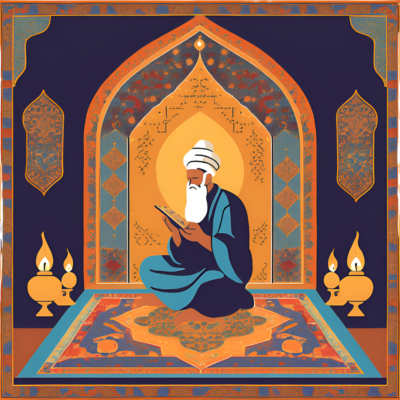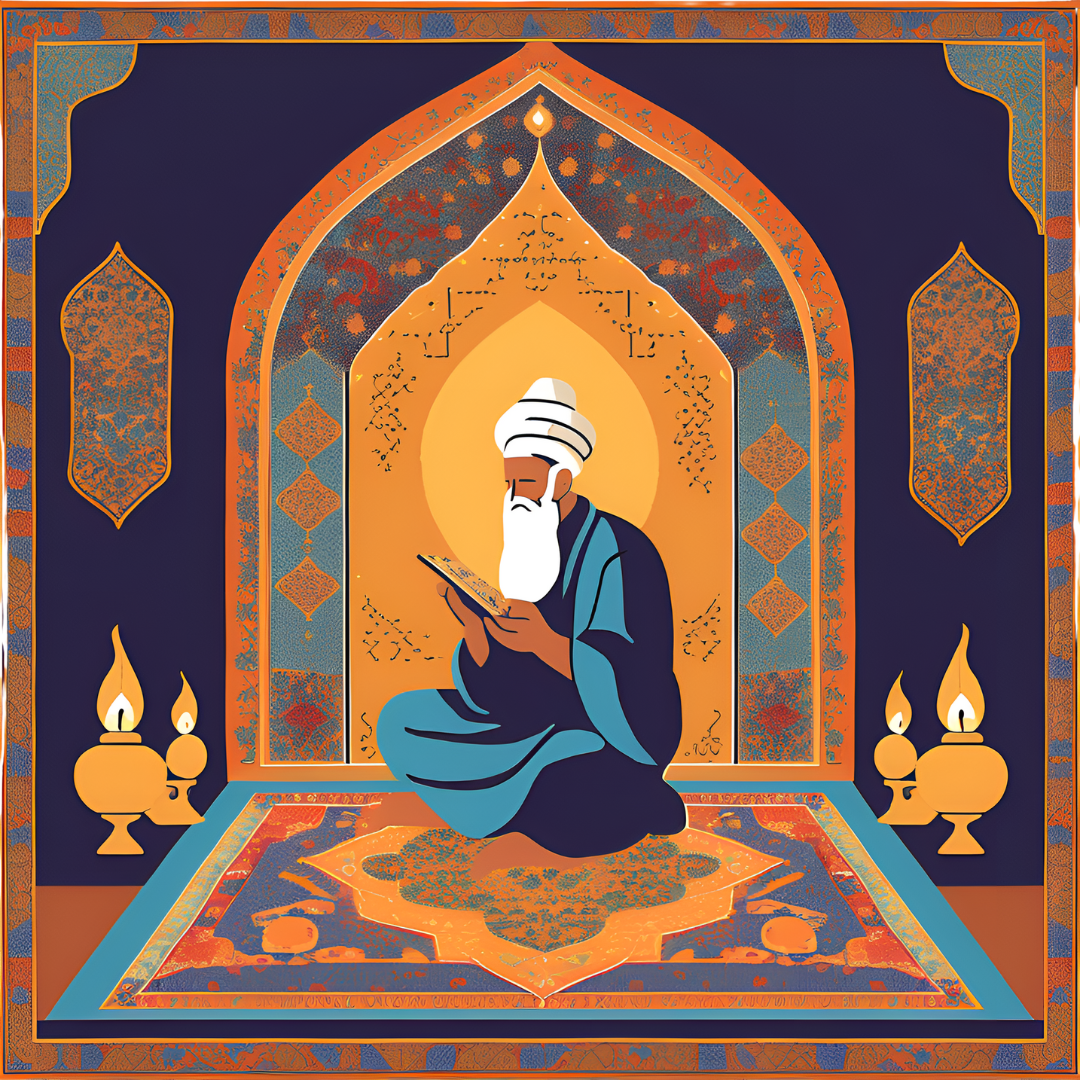
Jalal ad-Din Rumi, the 13th-century Persian poet, mystic and philosopher, transcends time with his wisdom, offering a deep understanding of life, love, and the soul’s journey. His teachings provide a framework for living authentically, navigating challenges, and cultivating inner peace. Here are 5 lessons by Rumi to live by that can transform the way we see ourselves and the world around us.
Follow the Pull of Your Heart
“Let yourself be silently drawn by the strange pull of what you really love. It will not lead you astray.”
Rumi believed that our passions and desires are not random—they are the whispers of the soul guiding us toward our purpose. Often, we ignore these callings, choosing practicality or comfort over the deeper fulfillment of following our heart. This lesson urges us to trust our inner guidance and honor what lights us up. It’s not about recklessness but about aligning our actions with what feels authentic and true.
How to apply this lesson:
Spend time reflecting on activities, people, or places that make you feel alive.
Take one step, however small, to integrate more of what you love into your daily life.
Be Present with Life’s Richness
“When the soul lies down in that grass, the world is too full to talk about.”
In a world of constant distraction, these words of Rumi are a gentle nudge to return to the present moment. He speaks of a state where the mind’s chatter quiets, and we experience the fullness of life simply as it is. This lesson is a call to mindfulness, to appreciate the beauty of the ordinary, and to recognize that peace is found not in striving but in presence.
How to apply this lesson:
Incorporate mindfulness practices like deep breathing, meditation, or journaling into your routine.
During moments of stress, pause and bring your attention to your senses: What can you see, hear, feel, or smell right now?
Embrace Your Divine Potential
“You were born with wings, why prefer to crawl through life?”
Rumi reminds us that we are not meant to live small, fearful lives. We are born with immense potential, creativity, and purpose, yet we often let self-doubt, fear, or societal expectations keep us from flying. This lesson challenges us to recognize the divine spark within us and to live boldly, fully embracing who we are and what we are capable of achieving.
How to apply this lesson:
Identify one area of your life where you are playing small. Ask yourself: What’s holding me back?
Take a courageous step, no matter how small, toward a dream or goal that truly excites you.
Pain is the Gateway to Light
“The wound is the place where the Light enters you.”
Rumi’s perspective on pain is one of his most profound teachings. He doesn’t ask us to deny our suffering but to see it as a doorway to transformation. Our wounds, when approached with awareness and compassion, can become the source of our greatest wisdom and strength. This lesson reminds us that healing is not about erasing pain but about finding meaning in it, allowing it to open us to greater love and understanding.
How to apply this lesson:
When faced with pain, resist the urge to suppress or avoid it. Instead, ask: What is this experience teaching me?
Seek support from trusted friends, therapists, or spiritual practices to help you process and grow through your struggles.
Loss is Transformation, Not the End
“Don’t grieve. Anything you lose comes round in another form.”
Loss, whether of a loved one, a dream, or an identity, is often one of life’s most challenging experiences. Rumi invites us to see loss not as an ending but as a necessary transformation. Life, he suggests, is inherently cyclical: just as the seasons change, so too do our circumstances. This lesson teaches us that what we lose is never truly gone, it reappears in new forms, offering us growth, insight, and renewal. The key is to let go of attachment and trust in the unfolding of life.
How to apply this lesson:
Reflect on a past loss and identify the gifts or lessons it eventually brought into your life.
Practice gratitude even in moments of difficulty, trusting that change is part of your evolution.
These lessons by Rumi are not abstract philosophies; they are practical truths that we can integrate into our daily lives. By embracing loss as transformation, recognizing our limitless potential, following our heart’s desires, practicing mindfulness, and finding light in our wounds, we begin to live with greater authenticity, resilience, and joy.
As Rumi beautifully said, “Try not to resist the changes that come your way. Instead, let life live through you. And do not worry that your life is turning upside down. How do you know that the side you are used to is better than the one to come?”
Let these words be your guide. Trust life, trust yourself, and trust the journey. The wisdom of Rumi is not just to be read, it is to be lived.
What lesson from Rumi resonates most with you? Share your thoughts or experiences. Let’s continue the conversation and inspire each other to live deeply and authentically.

Hafsa Khan
Hafsa Khan, also known as the Mystic Med, is a gifted mystic whose work explores the depths of human experience and the journey to healing. As an integrated, holistic practitioner, she specialises in pain relief and trauma release, blending ancient wisdom with modern therapeutic techniques. With a passion for guiding others on their path to wellness, Hafsa’s articles offer insights into the transformative power of self-discovery and the mind-body connection. Through her profound understanding of holistic practices, she invites readers to embrace their own healing journeys and cultivate a deeper connection with themselves, the world around them, and The Divine.

👍🏻
Nice
Nice read